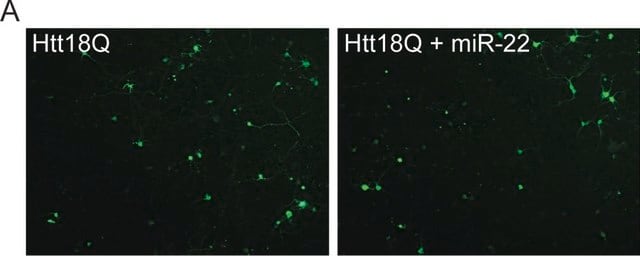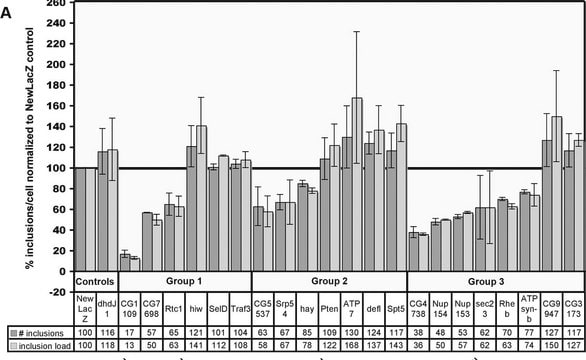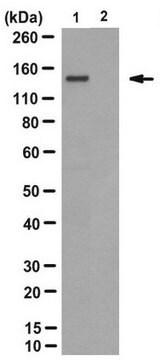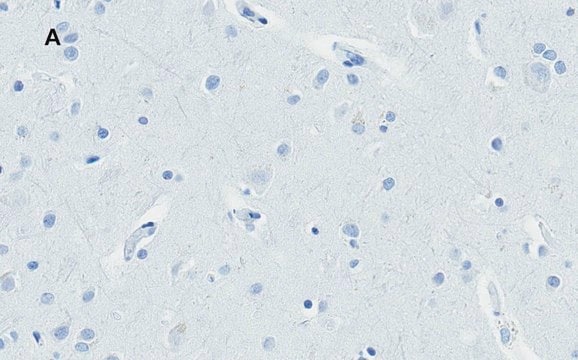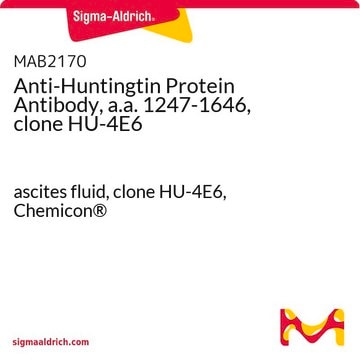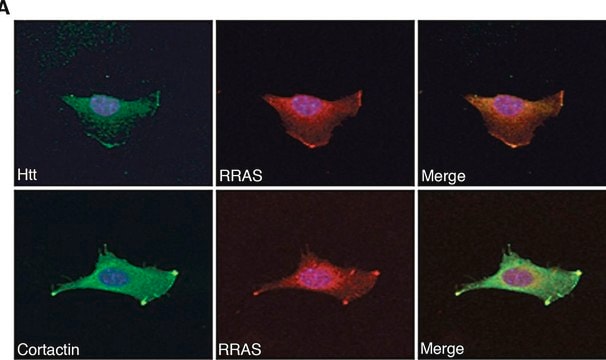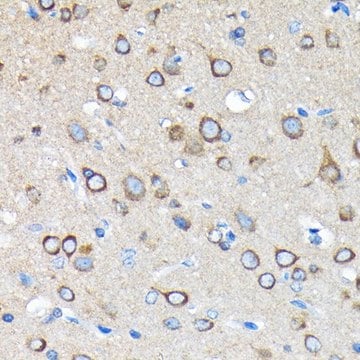ABN903
Anti-Huntingtin
from rabbit, purified by affinity chromatography
Synonyma:
Huntington disease protein, HD protein
About This Item
Doporučené produkty
biological source
rabbit
Quality Level
antibody form
affinity isolated antibody
antibody product type
primary antibodies
clone
polyclonal
purified by
affinity chromatography
species reactivity
mouse, human
packaging
antibody small pack of 25 μg
technique(s)
immunohistochemistry: suitable (paraffin)
western blot: suitable
UniProt accession no.
shipped in
ambient
target post-translational modification
unmodified
Gene Information
human ... HTT(3064)
Související kategorie
General description
Specificity
Immunogen
Application
Neuroscience
Quality
Immunohistochemistry Analysis: A 1:50-250 dilution of this antibody detected Huntingtin in human cerebral cortex and human Huntington′s diseased brain tissues.
Target description
Physical form
Storage and Stability
Other Notes
Disclaimer
Ještě jste nenalezli správný produkt?
Vyzkoušejte náš produkt Nástroj pro výběr produktů.
recommended
Storage Class
12 - Non Combustible Liquids
wgk_germany
WGK 1
flash_point_f
does not flash
flash_point_c
does not flash
Osvědčení o analýze (COA)
Vyhledejte osvědčení Osvědčení o analýze (COA) zadáním čísla šarže/dávky těchto produktů. Čísla šarže a dávky lze nalézt na štítku produktu za slovy „Lot“ nebo „Batch“.
Již tento produkt vlastníte?
Dokumenty související s produkty, které jste v minulosti zakoupili, byly za účelem usnadnění shromážděny ve vaší Knihovně dokumentů.
Náš tým vědeckých pracovníků má zkušenosti ve všech oblastech výzkumu, včetně přírodních věd, materiálových věd, chemické syntézy, chromatografie, analytiky a mnoha dalších..
Obraťte se na technický servis.